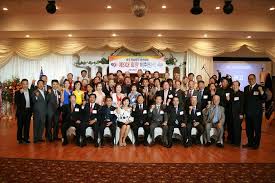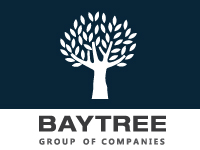CA
ON
놀부 - 한식/일식/중식
전화: 416-221-4700
3 Elmhurst Ave, North York, ON

호남향우회 (토론토)
전화: 647-981-0404
7 Bishop Ave. #2411 Toronto, ON

1004열쇠
전화: 416-895-1004
4 Blakeley Rd. Toronto, ON

준비된 바이어 그룹 , BAYTREE 이너써클
전화: 416-226-5999
7030 Woodbine Ave. Suite 103 Toronto, ON

싸인건설
전화: 416-909-7070
4065 Chesswood Dr. North York, ON
0.jfif)
홍이표치과
전화: 647-985-0456
9625 Yonge St #4, Richmond Hill, ON Toronto, ON
1.jfif)
대형스크린,LED싸인 & 간판 - 대신전광판
전화: 416-909-7070
4065 Chesswood Drive Toronto, ON

캐나다 공인 컨설턴트 - 한인크레딧 컨설팅
전화: 416-897-8438
1 High Meadow Place, Unit 2 North York, ON

조준상 (로열르페이지 한인부동산 대표)
전화: 416-449-7600
1993 Leslie St. Toronto, ON

토론토 민박 전문집
전화: 416-802-5560
Steeles & Bathurst ( Yonge) Toronto, ON

부동산캐나다 (Korean Real Estate Post)
전화: 416-449-5552
1995 Leslie Street Toronto, ON
.jfif)
럭키 여행사
전화: 416-938-8323
4699 keele st.suite 218 toronto Ontario M3J 2N8 toronto, ON

It would be a place where all the visitors including me share the life stories and experiences through their activities,especially on life as a immigrant.
Why don't you visit my personal blog:
www.lifemeansgo.blogspot.com
Many thanks.
블로그 ( 오늘 방문자 수: 29 전체: 229,275 )
미국은 말했고, SC의 이발소는 기뻐서 흥분 도가니.
lakepurity
2008-11-06
사진은,사우스 캐롤라이나에 '피어슨 웨스트사이드 이발소' 주인 윌리 피어슨씨가 손님 윌버트 바튼씨의 머리를 깍고 있다. "일어나 보니 행복한 날인것 알았지 않았느냐?" 피어슨씨는 그의 손님에게 밤사이에 대통령에 당선된 바락 오바마에 대해서 물은 것이다.
미국인들 그들의 의견을 선거에서 나타냈고, SC의 한 이발소에서는 흥분의 도가니에 젖어 있다.
스파탄버그, SC - 아침 해가 윌리 피어슨에게 환희 비추고, 그는 그의 소유인 '웨스트사이드 이발소'문을 열고 안의 전등을 켰다. 안에 모든것은 전날밤 문닫을때 해 놓은 그대로 였다. 즉 5개의 이발 의자, 이발소안의 소독약 냄새, 앞에 걸린 큰 유리 위에 걸려 있는 '죠 프레이져'의 사진.
그러나 모든것은 달라졌다.
"예 우리는 할수 있어요, 예 하고 말고요" 라고 웃으면서, 그가 문열기를 기다리고 있는 2명의 손님들에게 소리쳤다.
아래 원본을 보시면 더 재미 있는 선거 뒷얘기들은 볼수 있으며, 흑인 서민들의 느낌을 볼수 있읍니다.
America Speaks, and a South Carolina Barbershop Exults
Willie Pearson, owner of Pearson's Westside Barbershop in South Carolina, trims Wilbert Barton's hair. "You woke up happy today, didn't you?" Pearson asked a customer about Barack Obama's win. (By John Byrum For The Washington Post)
Thursday, November 6, 2008; Page A25
SPARTANBURG, S.C. Nov. 5 -- The morning sun shone down on Willie Pearson as he unlocked the front door of Pearson's Westside Barbershop and reached for the lights. Everything was just as he left it the night before: five barber chairs, the smell of talc and liniment, and a photo of Joe Frazier hanging above the mirror.
But everything was different.
"Yes, we can," Pearson said, smiling at two of his customers waiting for him to open. "Yes, we can."
No one needed to say a word. All three men were smiling. Each had stayed up late watching TV, and then woke early to watch more TV to make sure it was still true.
"America has spoken," Pearson, 57, said on the first day of the most historic of days when Sen. Barack Obama became the country's first black president.
But South Carolina had spoken, too, a harsh reality that competed with the joy felt in this barbershop. Sen. John McCain crushed Obama 54.1 percent to 44.7 percent in this state. And here in Pearson's county, Obama was rejected by an even larger margin, winning 38.7 percent of the vote compared with McCain's 59.8 percent.
The America that filled Grant Park in Chicago and danced in the streets in Washington is not the America where Pearson lives. Spartanburg was imperceptibly quiet on the morning after Obama's victory. But inside Pearson's barbershop, customers clung to the distant America that overwhelmingly voted for Obama rather than their home town.
"You woke up happy today, didn't you?" Pearson asked a customer, whipping a cape around his neck.
The barbershop, on the edge of Spartanburg, is old school. No dice, no cussing, no skipping the line. The Ten Commandments are tacked to the wall next to a Michael Jordan poster. Men come here because Willie Pearson runs an orderly barbershop in a disorderly world: Everyone takes a number.
His customers had no illusions about where South Carolina stood before the election. The editorial boards of the state's three largest newspapers endorsed McCain. A preelection poll showed the Republican leading by 21 points. Television clips about a heated squabble between the Spartanburg County Republican chairman and the president of the local NAACP chapter over the validity of a signature on an absentee ballot aired on local news the week before the election, inflaming old divisions.
While gospel music played in Pearson's barbershop Wednesday and customers shook hands and praised McCain for being respectful in his concession speech, Rick Beltram, the county GOP chairman, was at party headquarters, saying Republicans in Spartanburg were spurred to the polls after seeing the news clips about the altercation.
"You see an angry African American on TV, and I'm articulating exactly what the laws are and how we have to do it," Beltram said. "People came out fired up."
Lots of McCain-Palin signs were still planted in the front yards around Spartanburg, but many were pulled up, a quiet sign of defeat or the reckoning of a new day. At a victory party on election night for Republicans in local races -- they won overwhelmingly -- there was quiet resignation of an Obama victory.
"I question the American public's sanity right now," said Eric Nodine, a 36-year-old lawyer. "I'm concerned with the citizenry for putting him office."
But America has spoken, and the barbershop rejoiced.
"It's a good day in America," Pearson told a customer. "I remember the backdoor days."
Pearson's father worked for the railroad, and his mother made $3 a day as a domestic worker. In 1968, Pearson was among the first black students in Spartanburg County to be sent to a white junior high school under court order.
His younger customers missed all that. Dave Davis, 38, slipped into Pearson's chair holding the newspaper with Obama's picture on the front page and the headline, "Yes We Can," a contrast to his struggles. He gripped the paper tightly as he told Pearson: "I'm not at Caterpillar anymore. I got laid off."
An elderly man with blue eyes and a cane took off his Home Depot cap and eased into the chair.
"We waited all these years, all these years," said James McKinney, 77, who served 20 years with the Air Force before working for Norfolk Southern railway. "Just goes to show, you never know."
Freshly barbered, McKinney moved slowly toward the door that opened into the county that voted so overwhelmingly for Obama's opponent. "South Carolina, oh, Lord," he said, chuckling. "Oh, they won't like it. But there ain't nothin' they can do about it."
At 6 p.m., Pearson removed his smock, turned off the radio, flipped the light switch and locked the front door.
Outside the barbershop, everything seemed the same. He carried his copy of the newspaper to save for his grandchildren. On the road, cars still had South Carolina license tags that said "In God We Trust." The utility pole on U.S. 29 was still tacked with the "Jesus Saves" sign. Restaurants were still pouring iced tea sweet enough to melt molars. The textile mills were still empty, and dogs still barked at the end of their chains.
The russet and golden leaves of autumn swirled in darkness as Pearson drove home.
But everything was different.
Staff researcher Julie Tate in Washington contributed to this report.